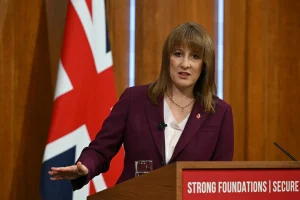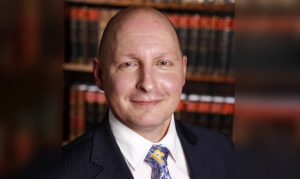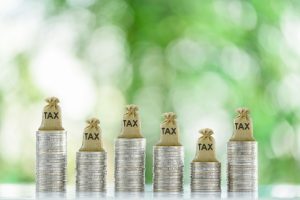The Office for National Statistics has released its report into the effect of tax and benefits on household income for 2016/16. It finds that the richest fifth of households have an average income of £88,800 a year – 12 times more than the poorest fifth (£7,400). After accounting for all benefits and taxes, that shrinks to under four times more.
However, VAT and taxes on spending unwind some of this spreading of the wealth, because the poorest fifth spent 30% of their disposable income on these taxes – while the richest fifth spent 15% on theirs.
Given that the VAT bill is growing, and direct benefits are shrinking, poorer households are being squeezed in both directions.
Sarah Coles, personal finance analyst, Hargreaves Lansdown: “Overall, benefits and taxes make a dent in income inequality: the richest fifth of households make 12 times more than the poorest fifth – but after tax and benefits they end up with five times more. Once you add in the impact of things like health and education it’s less than four times.”
“Wealth inequality after taxes and benefits has remained steady for years, but given the rise in the minimum wage and the fall in unemployment, you might have expected it to shrink. The problem for poorer households is a combination of benefit cuts and rises in taxes on spending.”
“Over the previous year the poorest half of households received £270 less in cash benefits. Meanwhile, we have also seen the burden of taxes on spending (like VAT) rise, which hit those on lower incomes disproportionately hard. The poorest half of families spent £350 more on these taxes than a year earlier (after accounting for inflation), and the amount of VAT paid by the poorest fifth of households increased by 14%.”
“Given that state support is shrinking and taxes are growing, it’s important that those on lower incomes get all the help they can. It’s well worth speaking to experts at charities like Citizens Advice or Stepchange, who know the system well, can let you know what you are entitled to, and can help you apply for benefits too.
Other findings:
- -The richest fifth of people paid an average of £21,400 in direct taxes – the vast majority of which was income tax.
- The group receiving the most cash benefits isn’t the poorest fifth, but the second poorest. This is because there are more retired people in this group – receiving the state pension.
- After cash benefits and direct taxes, the richest fifth are left with £70,700 to live off, while the poorest fifth have £13,400.
- After accounting for taxes, benefits and benefits-in-kind like the NHS, the richest have £66,300 and the poorest fifth £17,800.
- While the rich spend three times more on indirect taxes like VAT overall (because they spend more on the things that are taxed), the poorest fifth spend 30% of their disposable income on these taxes – compared to the rich who spend 15%. Between 2015/16 and 2016/17 the amount spent on indirect taxes overall rose 6.4%.
- The average (median) disposable income is £27,310.
- Households where the head is aged 25-64 paid more in tax than they received in benefits last year. Those aged 50-54 paid the most tax.
- Households where the head is over the age of 64 received more benefits than they paid tax – and the effect is more striking as people age. Those over 79 receive £14,621 more in benefits than they pay in tax.
- In the past 10 years, households where the head is aged 30-49 have become better off, as a result of income tax cuts and an increase in the value of the state education this group received.
- Those where the main earner is aged 60-69 are worse off than ten years ago, partly because of the rise in the state pension age for women. For 65-69-year-olds the tax bill has risen too – mainly because they are paying more tax on spending - like VAT.
(Source: ONS)





















